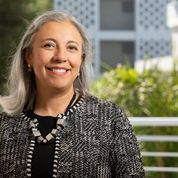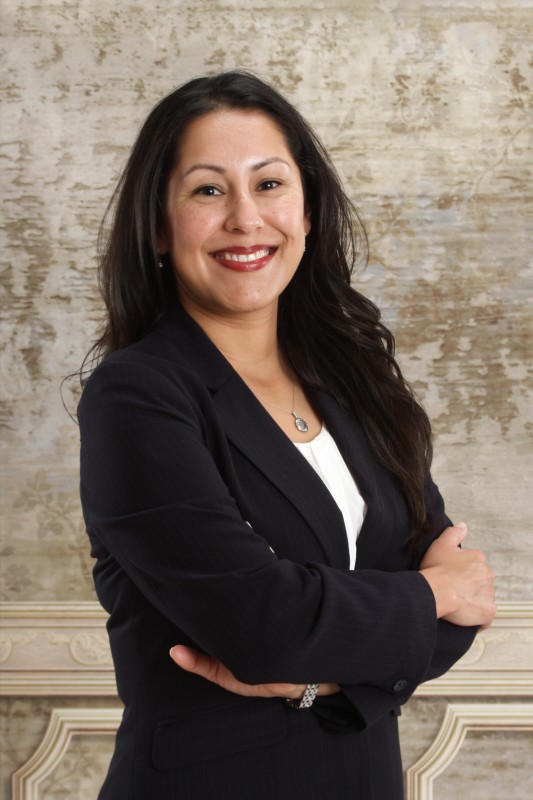Latinas Acknowledging Challenges and Opportunities in Leadership
Written by Dr. Estela Zarate, Ph.D., Vice Provost in the Division of Academic Affairs; Dr. Patricia A. Pérez, Ph.D., Professor in the Department of Chicana/o Studies and H&SS Associate Dean for Faculty at California State University, Fullerton
Raices/Roots
As first-generation college students who grew up in working-class communities in Houston, TX and Ventura County, California, Drs. Zarate and Pérez could not have planned for the leadership roles they hold today. Fortunate to have crossed paths in doctoral programs in education at the University of California, Los Angeles, and supported by phenomenal mentors like Kris Gutierrez, Sylvia Hurtado, Daniel Solorzano, and Patricia McDonough, among other amazing scholars, the doctoras would eventually both find themselves tenured faculty at California State University, Fullerton. Both authors conduct research and teach from critical and equity-minded lenses with the overall goal of erasing educational inequities, particularly for communities of color. Now in administrative roles, the authors use this essay to reflect on both challenges and opportunities that have surfaced from their perspectives as Latina leaders.
Challenges for Latinas Leaders
In the meetings Drs. Zarate and Pérez attend, and in the spaces where the doctoras are called on to represent the university, they find few administrators that reflect their own backgrounds. The low number of Latinas in university leadership positions reflects their low numbers amongst the professorial ranks. That is, Latinas make up 3%, 2%, and 1% of Assistant Professors, Associate Professors, and Full Professors across full-time faculty in U.S. degree-granting institutions (NCES, 2020). There are several well-documented challenges that impede the progress of Latina tenure-track professors from being granted (as opposed to obtaining) tenure and promotion. These include heavy service workloads, few role models, lower salaries, less mentorship, gendered/ethnic stereotypes that manifest in lower ratings on teaching evaluations, and a higher proportion of caregiving responsibilities, among other challenges (Cardel et al., 2020, Pérez, 2019). As tenured full professors before stepping into administrative roles, Drs. Zarate and Pérez were two of the 2,604 Latinas in the nation, who attained full professor rank. Of course these low numbers reflect the limited number of Latinas found in graduate and doctoral programs and do not reflect their leadership potential.
As is evidenced by the American Association of Hispanics in Higher Education (AAHHE) annual conference, AAHHE is one of the spaces Drs. Zarate and Pérez have found where students, faculty, administrators, policymakers and community members alike, can come together to strategize how best to support the Latinx community in higher education. There is no need to justify one’s values, goals, research, etc.-- spaces like AAHHE allow folks to be and jump right into the hard work ahead.
Opportunities
As Drs. Zarate and Pérez grow into their leadership roles, their understanding of administration and leadership and how to “serve” and “lead” continues to evolve. For now, two themes have emerged for them. First, leadership and leadership approaches are socially constructed; there is no one correct way to lead. As such, every leader has some agency in co-constructing the role and the institution culture and structure. By recognizing this socially constructed approach, they point to the way that an individual's personal and professional experiences influence what is “leadership potential”, the behaviors that are deemed leader-like, and the expectations of what leadership must accomplish. For emerging university leaders, who are positioned on the margins in socially dominant hierarchies, it is important to claim space to co-construct leadership models that reflect their social experiences and reality in the margins. This is a challenge that Drs. Zarate and Pérez embrace: asking, reflecting, and claiming definitions of leadership.
Second, engaging in reflective practice of leadership co-construction requires that leaders trust their knowledge and experiences. This is especially true for leaders who have origins in communities situated in the margins, where they have found a commitment to collaboration, community, and generativity. Too many times, institutions overtly and subtly send messages of individual gain, competitiveness, and dutiful observance of dominant ways of leading. To question or engage in curious inquiry from the margins, Drs. Zarate and Pérez have to rely on and trust the knowledge and learnings they have gained from non-mainstream experiences. As student demographics continue to change, it is imperative that institutions of higher education trust the expertise and experiences Latina leaders bring with them.
Finally, having clearly defined values that drive their decision-making has made the way in which Drs. Zarate and Pérez engage in projects (process), and how they arrive at their goals (outcomes), not only more meaningful but easier to tackle. That Drs. Zarate and Pérez’s values align with the university’s mission, goals, and values, has been an integral part of: 1) accepting their current roles; 2) carrying out their current roles; and 3) expanding on their current roles. In the end, centering their practice in the values instilled by their communities while remaining continuously curious about the institution is another iteration of the ways that they have traveled in the academy. •
References
Cardel et al. (2020). Turning chutes into ladders for women faculty: A review and roadmap for equity in academia. Journal of Women’s Health, 29(5), 721-733.
Pérez, P.A. (Ed). (2019). The tenure-track process for Chicana and Latina faculty: Experiences of resisting and persisting in the academy. New York, NY: Routledge.
U.S. DOE, NCES (2020). The condition of education 2020 (NCES 2020-144).
Authors’ Bios:

Dr. Estela Zarate, Ph.D., is Vice Provost in the Division of Academic Affairs. Her scholarship addresses the trajectory of immigrant students in U.S. schools, including the connections between schools and families and the experiences of multi-lingual learners. AAHHE Member mazarate@fullerton.edu

Dr. Patricia A. Pérez, Ph.D., is a Professor in the Department of Chicana/o Studies and H&SS Associate Dean for Faculty at California State University, Fullerton. AAHHE Member pperez@fullerton.edu